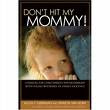Topics List: Spring 2008
- VIOLENCE, TRAUMA AND SOCIAL WELFARE COLLOQUIUM
- Week 1: Introduction and Self-Care
- Week 2: Historical and Theoretical Perspectives
- Week 3: Biopsychosocial Impact of Trauma
- Week 4: Violence Against Women
- Week 5: Religion, Race, Ethnicity, and Violence
- Week 6: Etiologies of Violence; Perpetrators of Intimate Partner Violence
- Week 7: Child Sexual Abuse; Suicide and Self-Harm
- Week 8: War, Crimes Against Humanity, and Genocide
- Week 9: Poverty and Violence in Oakland & Bayview-Hunter's Point
- Week 10: Rape as a Weapon of War; Violence Against LGBT people
- Week 11: Interventions for Trauma (with Greg Merrill)
- Week 12: Child-Parent Psychotherapy
- Week 13: Truth & Reconciliation in the Aftermath of Violence (with David Androff)
- Week 14: Violence, Trauma and Social Work (student presentations)
Showing posts with label week 13. Show all posts
Showing posts with label week 13. Show all posts
Friday, April 25, 2008
Tuesday, April 22, 2008
New Orleans: Hurricane Katrina Recovery
(slides are still under construction)
This is an incredible song accompanying photos of New Orleans during and after Katrina. It tells a powerful story exposing disparity, inequities and ineffectiveness in disaster response, challenges in living during and after the storm, and the resiliency that people invoked out of necessity.
The only attention that this issue has received in the presidential campaigns was this recent visit to New Orleans by John McCain, in which he criticized the reaction of the administration in responding to the problems. He did not particularly pose solutions or a plan for what he would do, but he issued the oft used slogan, "never again!" This statement sounds somewhat hollow, especially in the context of this Ninth Ward community member's response to McCain's visit:
This is an incredible song accompanying photos of New Orleans during and after Katrina. It tells a powerful story exposing disparity, inequities and ineffectiveness in disaster response, challenges in living during and after the storm, and the resiliency that people invoked out of necessity.
Read this doc on Scribd: Poverty
The only attention that this issue has received in the presidential campaigns was this recent visit to New Orleans by John McCain, in which he criticized the reaction of the administration in responding to the problems. He did not particularly pose solutions or a plan for what he would do, but he issued the oft used slogan, "never again!" This statement sounds somewhat hollow, especially in the context of this Ninth Ward community member's response to McCain's visit:
At least one citizen was disturbed by all the media attention, particularly by the lack of seats for local citizens at Mr. McCain’s 20-minute news conference. “We need to have an opportunity to have a meaningful dialogue,’’ said Mary Fontenot, who is with All Congregations Together, a church group working to rebuilding New Orleans. “Twenty minutes out on the lawn does not suffice, with a designated seating for traveling journalists.’’
Labels:
Hurricane Katrina,
natural disaster,
New Orleans,
week 13
Friday, April 18, 2008
Truth and Reconciliation
The Greensboro Truth and Reconciliation Commission was an independent, democratically selected body seeking truth and healing transformation for Greensboro, N.C., a city left divided and weakened by the events of Nov. 3, 1979.
The truth and reconciliation process is designed to examine and learn from a divisive event in Greensboro's past in order to build the foundation for a more unified future. The Greensboro Truth and Reconciliation Commission is based upon similar efforts around the world, most notably in South Africa. Building on this wealth of international experience, Greensboro represents the first application of this model in the United States.
For more information, click here.
The truth and reconciliation process is designed to examine and learn from a divisive event in Greensboro's past in order to build the foundation for a more unified future. The Greensboro Truth and Reconciliation Commission is based upon similar efforts around the world, most notably in South Africa. Building on this wealth of international experience, Greensboro represents the first application of this model in the United States.
For more information, click here.
Labels:
after violence,
interventions,
TRC,
Truth and Reconciliation,
week 13
Subscribe to:
Posts (Atom)
Who Are You? (check all that apply)
How did you find this blog?
Links to Browse & Buy Books
Trauma and Recovery

by Judith Lewis Herman
Don't Hit My Mommy

by Alicia Lieberman and Patricia Van Horn
Violence: A National Epidemic

by James Gilligan
Ayaan Hirsi Ali
- Submission Part 1 (a short film in which the words of the Koran are written on women's bodies as they speak their stories of violence and trauma)
- "Infidel" (her autobiography of growing up a refugee and becoming a member of the Dutch Parliament)
- "The Caged Virgin" (her essays about women and Islam)
- Ayaan's Personal Web Page
- Wikipedia (good summary of her life, philosophy, and work)
Submission
Ayaan Hirsi Ali

from the cover of "Infidel"






